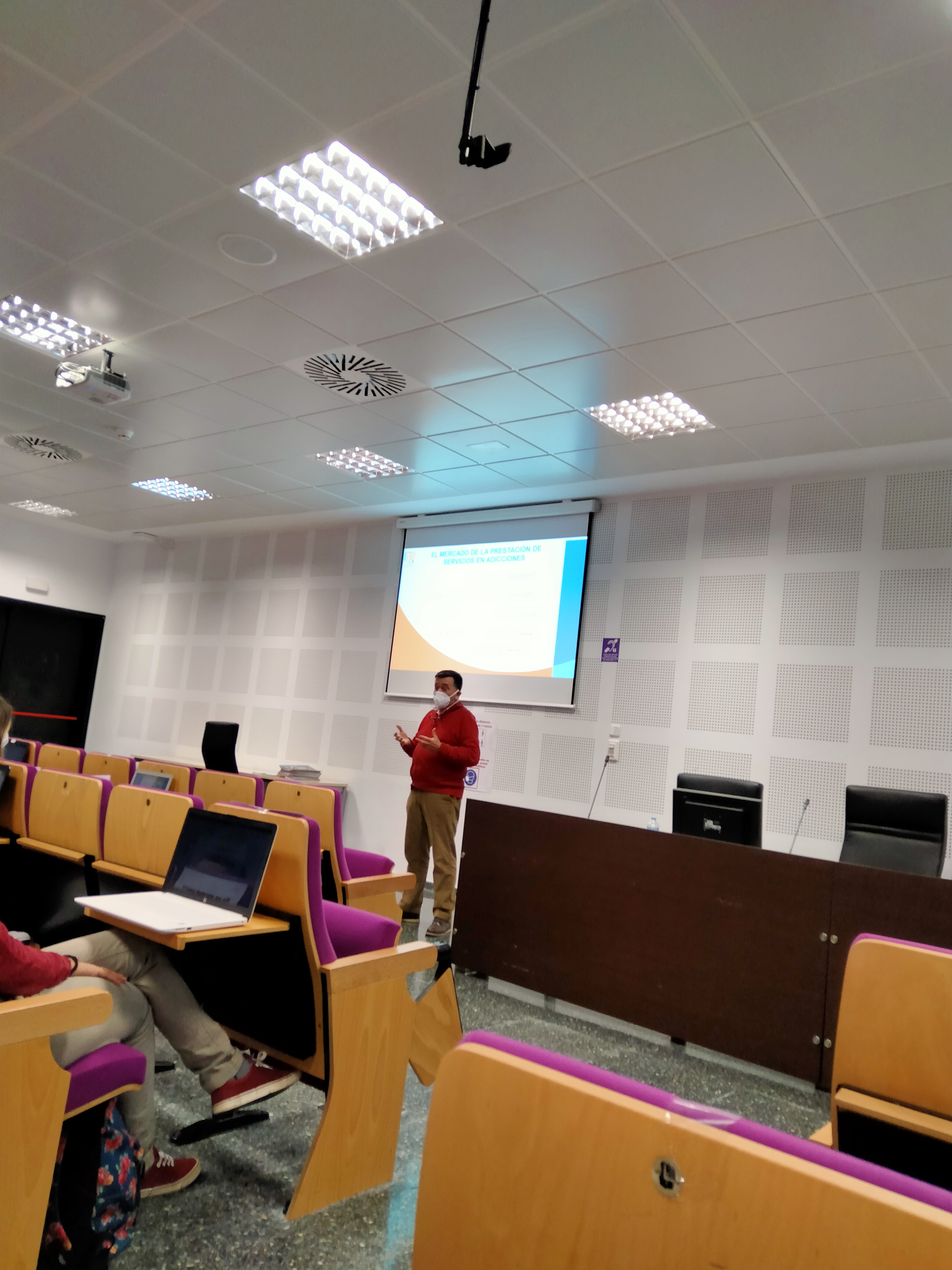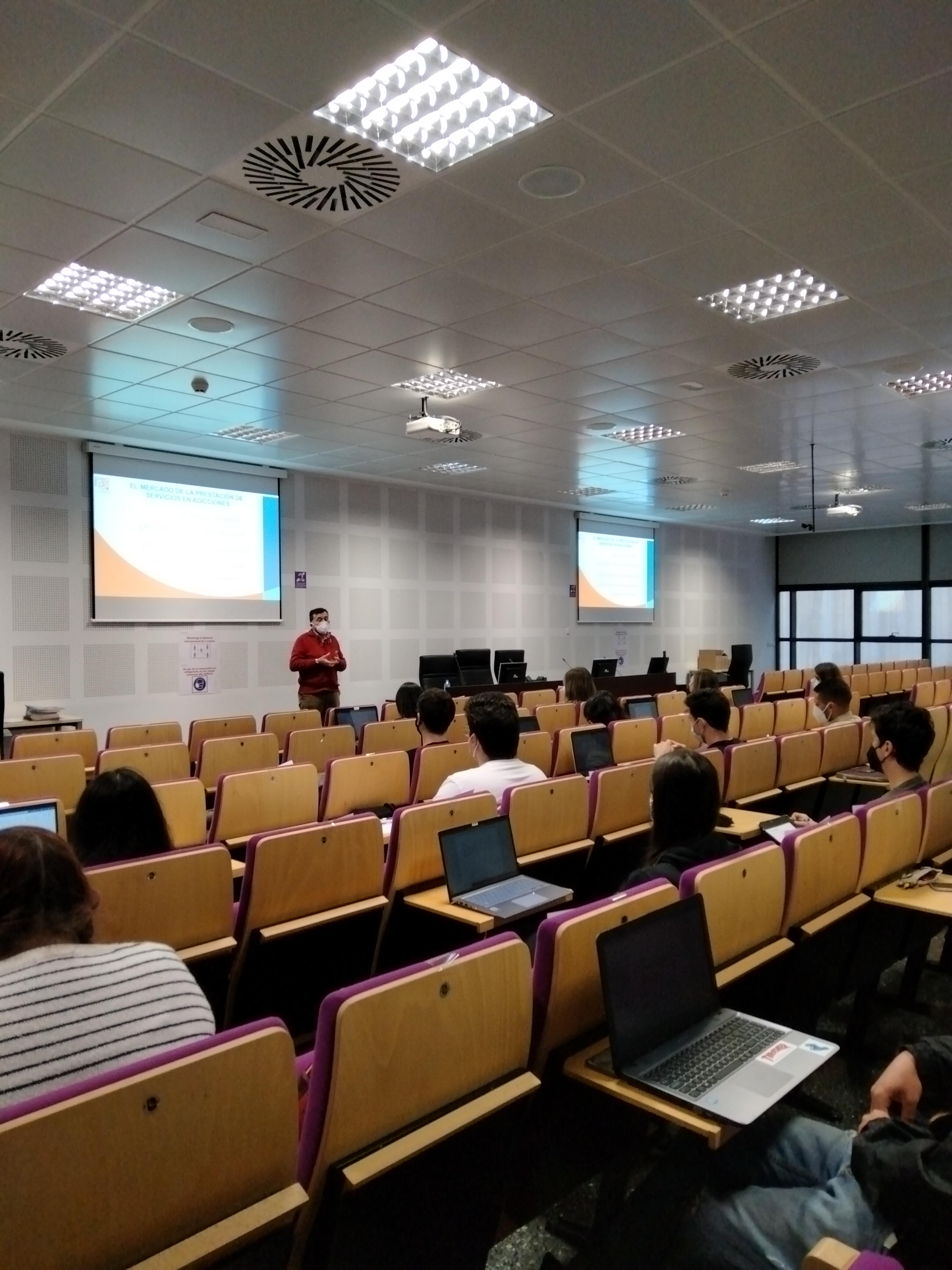
Don Vicent Andrés Martínez is a psychologist and head of the Proyecto Hombre de Valencia centre.
The usual collaboration between this organisation and our Master’s Degree provides information and active participation in the training of our students via external internships. D. Vicent Andrés informed about the characteristics of the Fundación Arzobispo Miguel Roca, which we know as Proyecto Hombre. It’s a non-lucrative, non-religious organisation whose goal is to socially intervene in the field of addiction. It’s an organisation of the so-called “third sector”, which is known for offering fast response to emerging necessities bringing forward social predicaments, such as substance use disorders. This structure is integrated by volunteering professionals from various areas with specialised training in addictions.
The assistance and treatment they offer adapted to the peculiar times we’re living in due to the pandemic we’re fighting against since last year. At the start of the pandemic, the day and therapeutic community centre was shut down, suspending assistance in prisons and outpatient care. He explained us how users in treatment were handled and how the necessity of keeping in contact with patients led towards the use of other mediums: telephone, video, e-mail address, virtual meetings, social networks, etc. His professionals replaced on-site action with telematic activity. That involved 24/7 connection work which required a learning effort faced in an intuitive manner, with enthusiasm and uncertainty. The result has been surprisingly favourable and although they recognise that the suffered lockdown contributed in adapting to this change, they are also conscious of the fact that it’s necessary to keep using these tools together with on-site attendance.
They resumed group work, individual and family treatment, but they are also keeping up work groups and online attendance, for which they specify that the experience opened a new realm to “explore telematic possibilities for addiction treatment”, a new facet that’s being standardised to decide the steps and phases to follow during the development of unattended treatment.
Lastly, he explained that among the difficulties they willingly take on besides treatment, they also have a training area intended for professionals as well as teachers and families they collaborate with. Likewise, within the prevention area they develop in family and school matters, they started to introduce prevention measures in the work field, a space of high drug consumption that usually remains silent or goes unnoticed.
Links:
Images:








